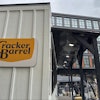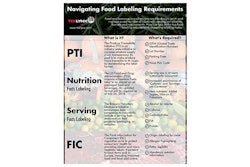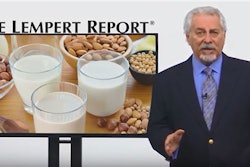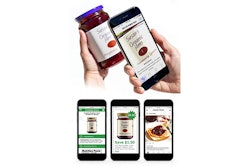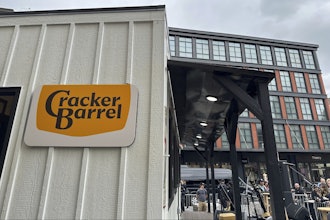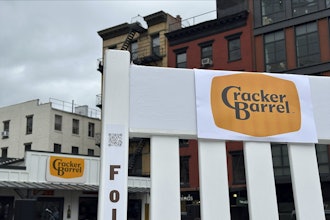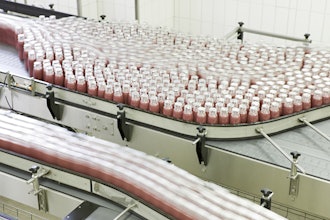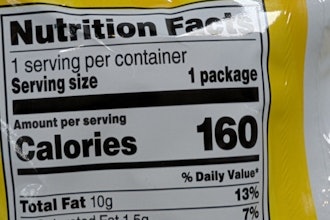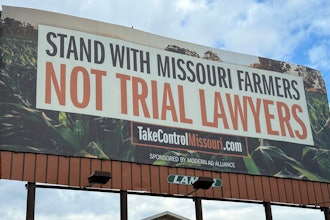Merriam-Webster defines the word natural in several senses, two of which matter to food manufacturers using the word on their products: (1) “found in or produced by nature,” or (2) “being or acting as expected.”
Meanwhile, the U.S. Food and Drug Administration (FDA), which has not formally defined the word by rule or otherwise, “has considered the term ‘natural’ to mean that nothing artificial or synthetic (including all color additives regardless of source) has been included in, or has been added to, a food that would not normally be expected to be in that food.”
What’s in a Word?
Where differences of opinion — and legal claims — often arise is in the second sense above, which the FDA seems to acknowledge when referring to the lack of any ingredient “that would not normally be expected” to be present in a food.
So, what is “normal” and what is “expected” when it comes to a food product?
Let’s take a brownie baking mix. Would the presence of baking powder in that mix be considered normal or expected? This particular product has the word baking in it; thus, one might argue the presence of a leavening agent (baking powder) in such a product is both normal and expected, such that referring to the mix as “natural” would be consistent with the second sense of the term.
Nevertheless, one might instead argue the opposite, emphasizing the first sense of the term and noting that baking powder typically contains a synthetic ingredient: sodium acid pyrophosphate (SAPP).
Food Labeling Claims Targeting Use of the Phrase “All Natural”
For those arguing the opposite, consumer protection acts and merchandising practices statutes continue to be a frequent source of lawsuits against food manufacturers. Considering the relatively small value of individual claims, many of these lawsuits are filed as class actions in state court — and are often framed in a way to avoid removal to federal court under the Class Action Fairness Act (CAFA). This framing tactic matters because most attorneys generally consider federal court to provide a more level, standardized playing field with stricter requirements for pleading a claim, higher standards for the admission of expert opinions and other hurdles plaintiff’s attorneys often do not face in state court.
Without a doubt, product labeling — and the words chosen to describe a product — remain a favorite target of plaintiff’s lawyers. This article discusses a common type of product labeling claim that focuses on the words “all natural,” which are alleged to be “deceptive” or to “misrepresent” a product in such a way that purchasers are allegedly entitled to damages. As part of the discussion, defenses to these claims — as well as tactical litigation options — will be covered.
A typical consumer protection statute reads something like the Missouri Merchandising Practices Act (MMPA), which provides that “[t]he act, use or employment by any person of any deception, fraud, false pretense, false promise, misrepresentation, unfair practice or the concealment, suppression, or omission of any material fact in connection with the sale or advertisement of any merchandise in trade or commerce … in or from the state of Missouri, is declared to be an unlawful practice” (Section 407.020.1 RSMo).
The language used in these statutes (as in the MMPA above) tends to be broad. What’s more, many of them, including Missouri’s, authorize a private citizen to file the lawsuit, to initiate a class action and to recover punitive damages and attorney’s fees (see Section 407.025 RSMo).
To avoid removal to federal court under CAFA, which sets a $5 million threshold on the value of the case, plaintiff’s attorneys often target a single product made by a manufacturer rather than multiple products, or will target smaller or mid-size manufacturers. But interestingly, when some of these attorneys attempt to seek a quick settlement with the manufacturer, they may inadvertently say or put things in writing that indicate a wider scope than what is stated in the lawsuit. For example, the complaint may refer to one product, but a settlement demand — or even a request for documents — may seek information about multiple products that, taken as a whole, yield more than $5 million in sales. Such a move by a plaintiff’s attorney (inadvertently or otherwise) can be sufficient to make a case removable to federal court.
Defenses on the Merits
Beyond the tactical matter of removability, what arguments may be at food manufacturers’ disposal concerning the merits (or lack thereof) of these claims?
For one thing, a product’s ingredient list usually discloses the presence of something with which a plaintiff’s attorney may take issue. When there is such disclosure, a fair question arises: “Where is the deception?”
In addition, emphasizing the first sense of the word natural over the second could render all processed foods (such as packaged potato chips or ice cream) “non-natural” in the sense that they are not “found in or produced by nature.” Such a strained definition of the word, however, is itself … not natural.
Another defense focuses on the consumer’s expectations. If we use the brownie baking mix mentioned earlier, there is a reasonable expectation that consumers want a baked-good product that yields a light and fluffy result. Such a result is not possible without a leavening agent such as baking powder. In this sense, omitting baking powder to produce an “all natural” product in the first sense of the term actually yields a product that fails to meet the consumer’s expectation (as reflected in the second sense of the term), and ironically could lead to the filing of a lawsuit for failing to deliver the light and fluffy result commonly associated with a baked brownie.
Other Potential Defenses, and the Takeaway
Other defenses are often available, depending on the product in question and the allegations made by a particular plaintiff. For example, a plaintiff may fail to state a claim that meets all the elements under the consumer protection act at issue. And even if the plaintiff initially states a claim that is sufficient to avoid a motion to dismiss, a later deposition under oath may reveal that he or she had expectations that were largely or fully met by the product in question.
Looking at the larger picture, though, food manufacturers may want to consider whether use of the phrase “all natural” provides enough of a competitive advantage to offset the potential for future lawsuits. Though perhaps no product labeling is necessarily immune from future claims, expansive words like all (particularly when matched with the word natural) may make a manufacturer more likely to face claims. If such words are going to be used, consultation of a lawyer with experience in representing food manufacturers, as well as someone of an appropriate scientific background (such as a chemist), may be advisable to learn of any potential pitfalls.
About the author
As a shareholder and leader of the Appellate Team at Sandberg Phoenix & von Gontard P.C. in St. Louis, Missouri, Tim Sansone has defended several food manufacturers against food labeling lawsuits and other claims related to merchandising practices. In addition to product liability defense and appellate practice, he focuses in the areas of business litigation, class action defense and insurance coverage.


